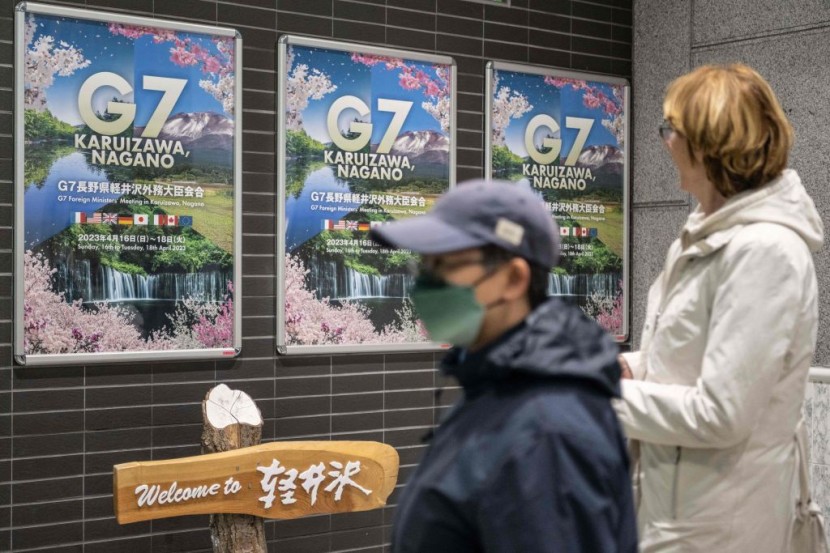
- Group of Seven member states plans to stand up to any Chinese "coercion" in the Taiwan Strait
- One senior US State Department official said that the G7 is considering asserting its influence in the region to push Beijing back
- The situation comes amid rising tensions in the Indo-Pacific region as China continues to expand its influence to other nations
Member states from the "Group of Seven," more commonly known as the G7, have a shared stance on the China-Taiwan issue and are considering asserting influence in the Taiwan Strait to push Beijing back from the region.
The various representatives of the group of global powers agree that there is a need to stand up to any Chinese "coercion" or attempts to spread control in the Taiwan Strait. A senior US State Department official detailed the situation on Monday amid rising tensions surrounding Taiwan's claimed independence.
G7 Member States Agree on Stance Against China
Officials are increasingly concerned about China's continuously aggressive stance on Taiwan. The situation in the Indo-Pacific region has been a key point of discussion during conversations between G7 foreign ministers during a meeting held in Japan's Karuizawa, as per Reuters.
The official added that the same message was echoed among G7 members where they wanted to cooperate and China with where Beijing is willing. They added that they would not stand idly by if China conducts market manipulation or tries to change the status quo in the Taiwan Strait.
Ministers in the group have become increasingly keen on standing under a unified front. The situation comes after French President Emmanuel Macron recently commented that he was siding with Beijing on China's territorial claim of Taiwan.
Macron visited Beijing earlier this month and cautioned against being dragged into a crisis over Taiwan that he claims was driven by an "American rhythm and a Chinese overreaction." Japan, the only Asian member of the G7, has become increasingly concerned over Beijing's potential aggressive moves on Taiwan.
Member States Plan To Assert Influence in Taiwan Strait
The meeting on Monday between G7 member states primarily focused on Russia's war on Ukraine. According to the Associated Press, the discussions are expected to pave the way for action by leaders of the G7 in their scheduled meeting next month in Hiroshima.
Japanese Foreign Minister Yoshimasa Hayashi said that the world is now at a "turning point" with the fighting in Ukraine. He said global leaders should reject "unilateral attempts to change the status quo by force."
Hayashi argued that this includes Russia's continued aggression against Ukraine and its threat of using nuclear weapons in the conflict. The American delegation in the meeting viewed the gathering as an opportunity to raise the issue of China's aggression on Taiwan.
The G7 representatives also discussed energy and food security and stronger engagement with nations known as the Global South. These are a loose category of roughly 100 countries, many of which are developing and remain non-aligned with any major global powers, said the Japan Times.
Related Article : Top Kremlin Critic Vladimir Kara-Murza Sentenced to 25 Years in Jail








